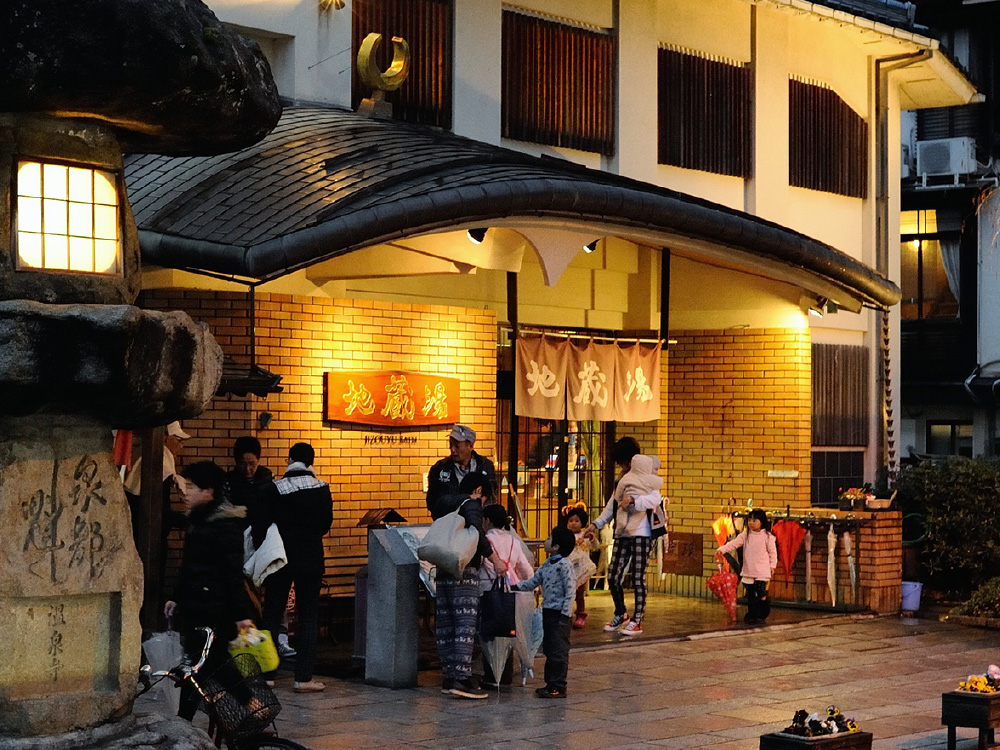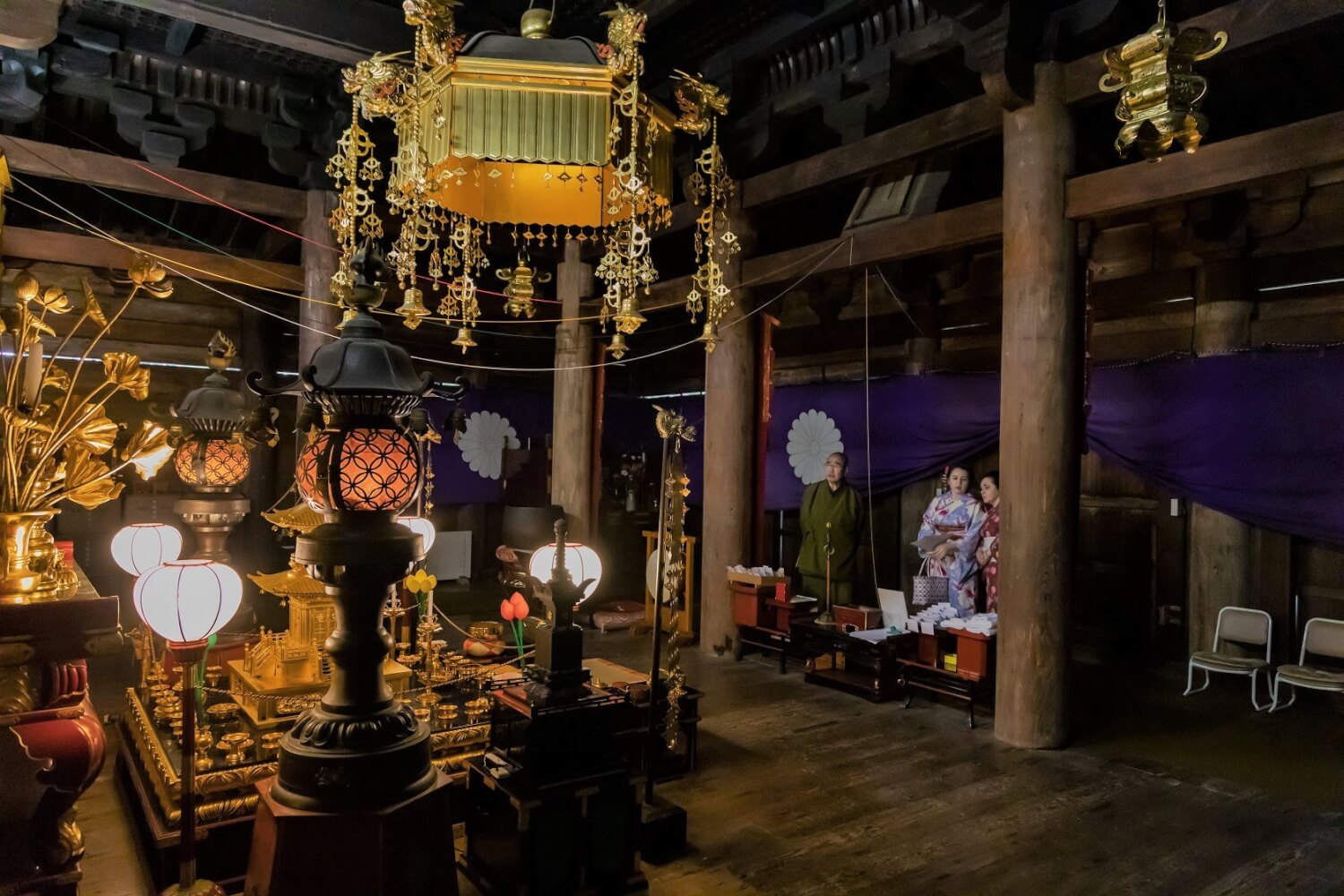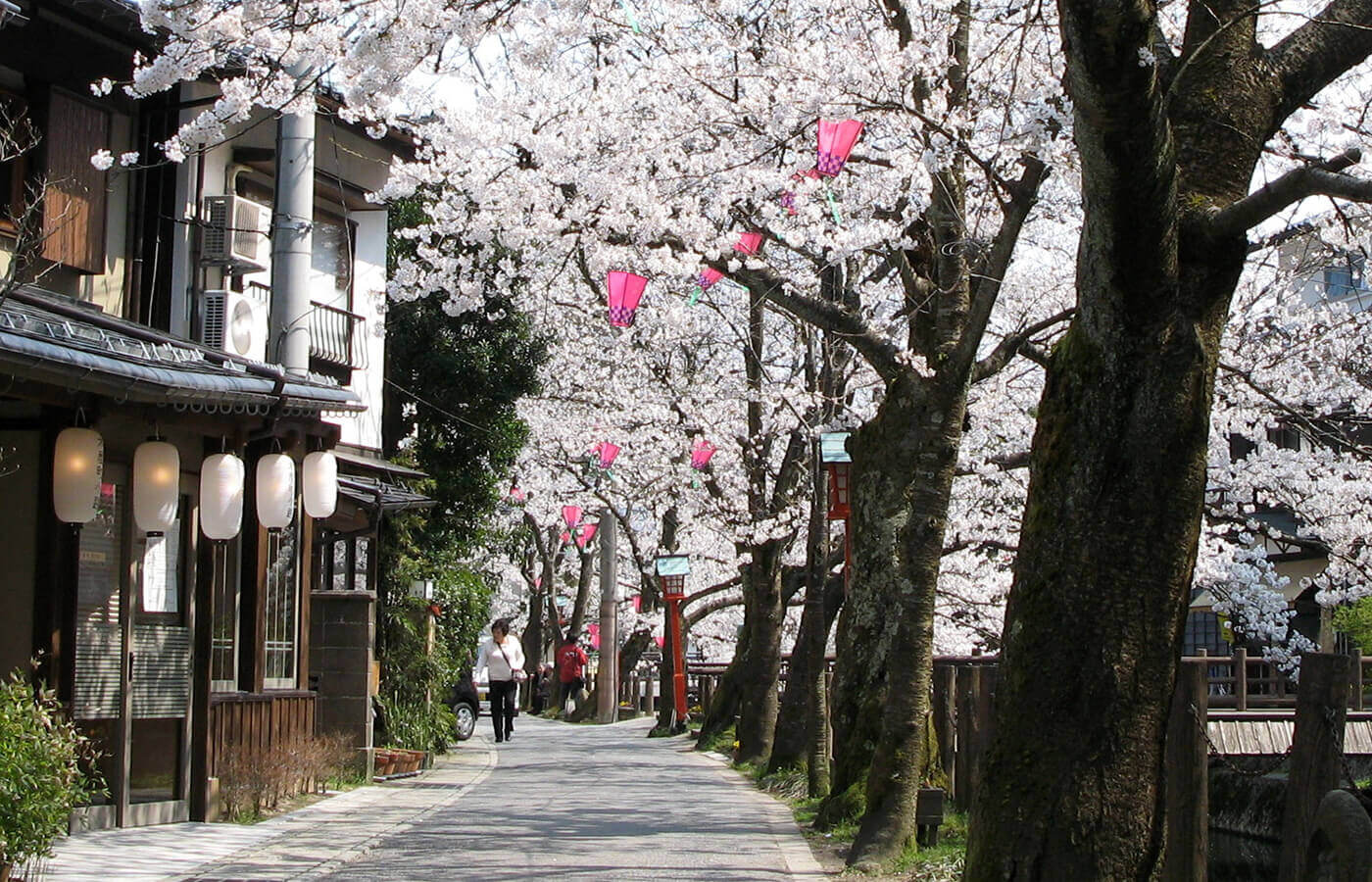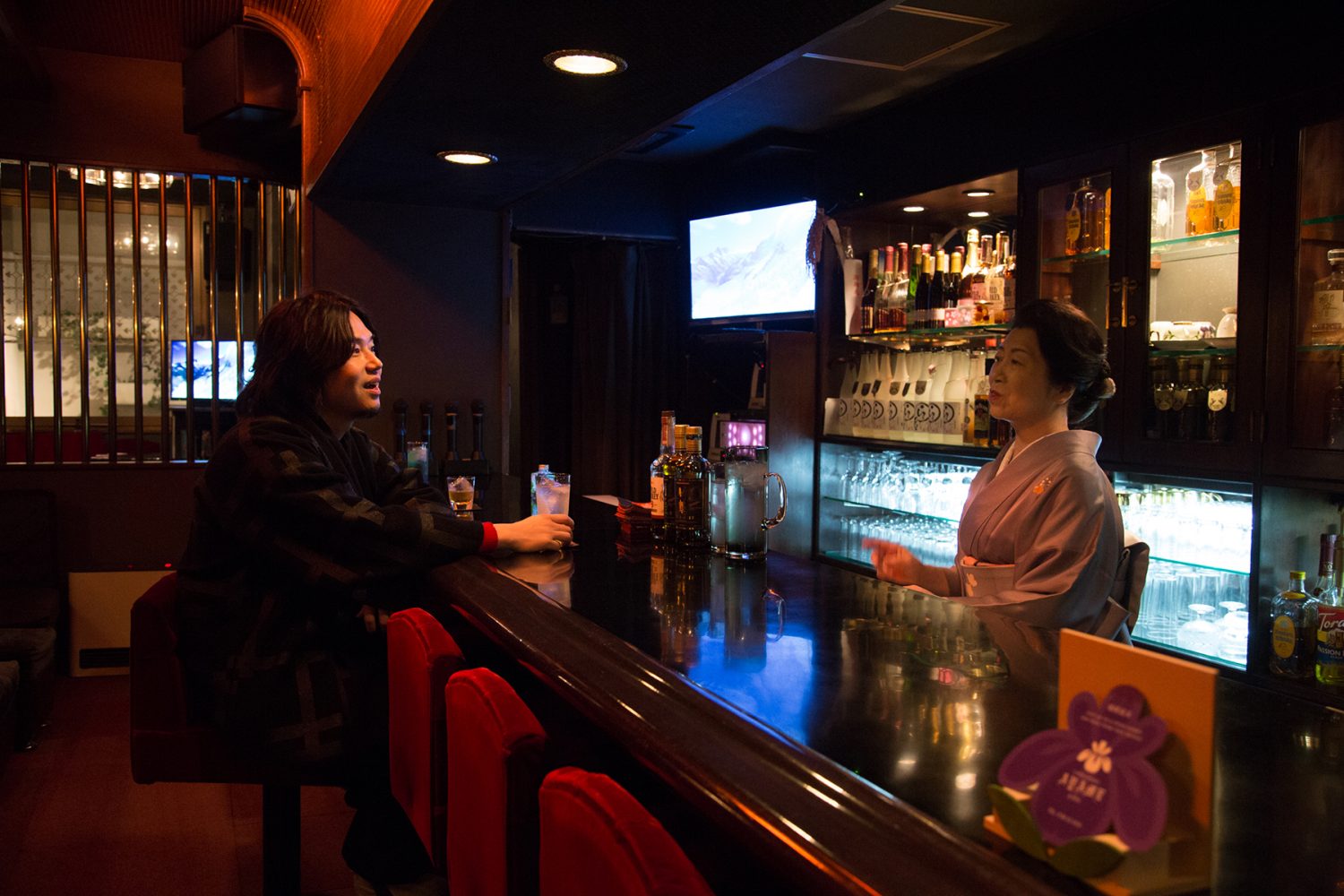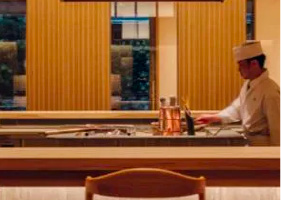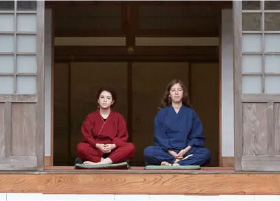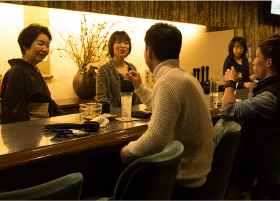Kinosaki’s Community with Tourism
Community & tourism side by side
Kinosaki Onsen is both a residential and a tourist district. The vast majority of shop owners live above or behind their shops, as this is the way it has always been. Because the local businesses call Kinosaki Onsen home, they take great pride in their town’s appearance, history, and culture. This makes Kinosaki Onsen an extremely safe, clean, and friendly place to live and to visit.
Here locals depend on tourism for their businesses and livelihood, while tourism depends on the success of the local businesses. There are many businesses engaged in the town’s tourism, from accommodations and restaurants to landscaping and printing industries.
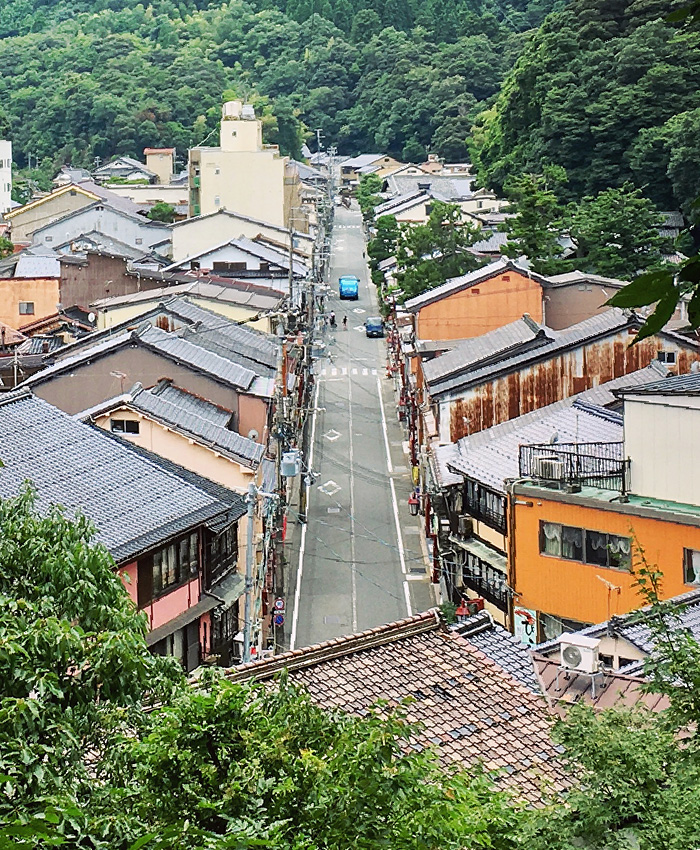
The lives and daily routines of the locals intertwine with and help build local tourism.
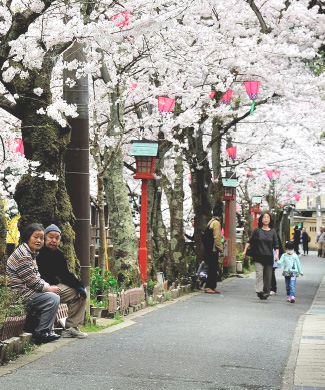
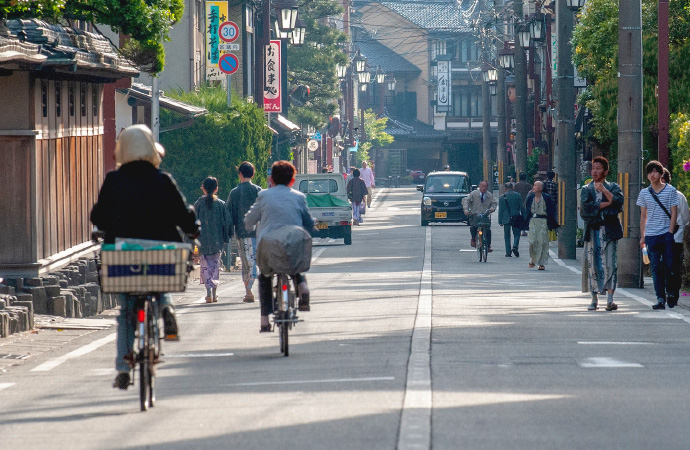
The daily lives of the locals shape the town
From a very early age, the children of the town are exposed to the tourism business as part of their culture and daily lives. These children create and maintain relationships that develop from childhood friendships into business relations when they either take over their parents ryokan, restaurant, or shop, or perhaps even create their own establishment. This contributes to the spirit of “coexistence and co-prosperity” and it is this spirit that supports the prosperity of Kinosaki Onsen.
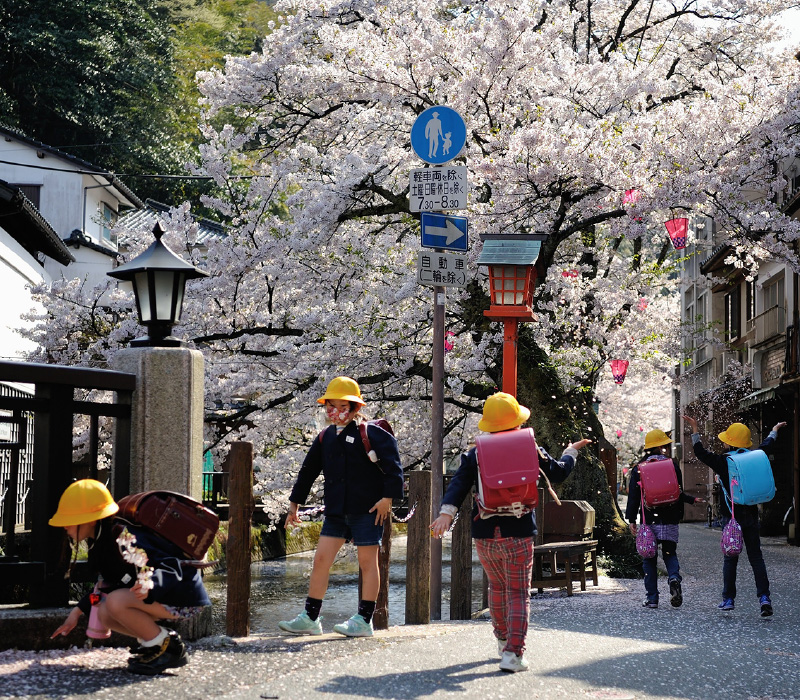
Kinosaki Onsen community
Relationships created at an early age are often carried into adulthood. These relationships and experiences help to develop a sense of belonging and a connection to the local community and tourism economy.
Many of the current residents have, at some point, lived outside of the area for school or work and then returned either by themselves or with their new family. These new members are introduced and welcomed into the community and find themselves participating in the development of the town. In this way, Kinosaki Onsen is not exclusive to natives but rather has an open and welcoming relationship with transplants and visitors, creating an accepting network that becomes the driving force for promoting tourism development.
Community-led tourism with local businesses, new and old
From onsen operations to ryokan menus, nearly everything is managed locally. In the 1950s, the town decided that the seven hot spring bathhouses would be given priority over the smaller private baths owned by individual ryokan, and thus centralized hot spring management was established.
Neighborhood fishermen and farmers sell their fresh catches and produce at local markets, restaurants, and ryokan. The menus of many establishments in town consist of locally-grown ingredients, ensuring freshness and reputability.
Where you'll find the locals
You’ll find them where you'll find the tourists!
Nearly everyone frequents the seven mystic hot springs. Some of the locals still rely on the hot springs for their baths since their houses do not have bathtubs. Of course, locals also patronize bars, restaurants, and shops to support their friends and family. The littlest ones can be found at a nearby ice cream shop or arcade with their parents in tow, asking for a few yen to play a game or have a treat.
